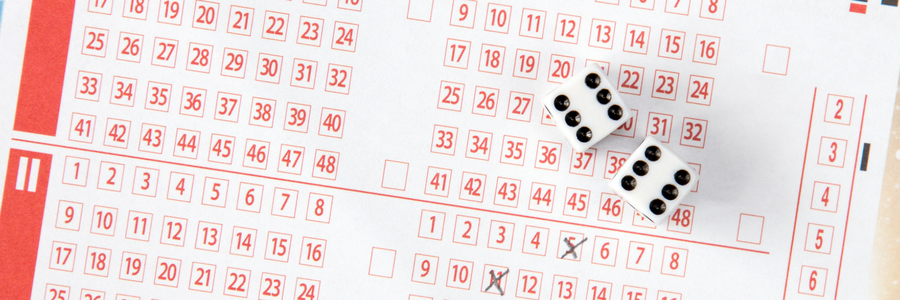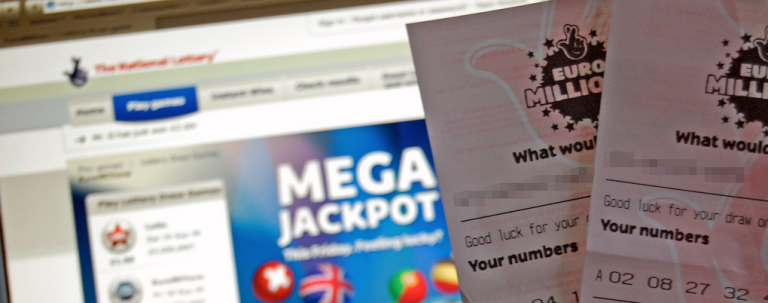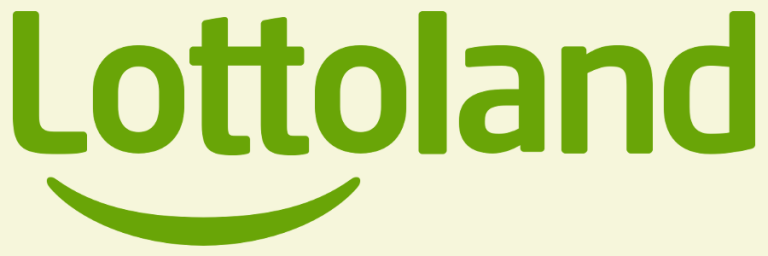Lottery Betting Sites Under Increasing Pressure from Regulators
Lottery betting sites may end up a victim of their own success. Regulators in the UK, Australia and elsewhere have begun moving from merely giving lottery betting operators the stink-eye to actually banning certain products.
A UK decision back in November to ban betting on non-UK EuroMillions drawings took effect on Friday, and Australia has also recently implemented a ban on what it calls “synthetic lotteries.” Lotto sites such as Lottoland.com and Jackpot.com are facing increased scrutiny from local governments and lottery operators (which are often one and the same) intent on protecting their monopoly products.
Lottery Betting Sites Offer Certain Advantages and Cannibalize Market Share
Official lottery operators have in the past accused “synthetic lotteries” of confusing customers into believing they are actually supporting the local lottery when they are in fact not, and they have said this deprives the government of funding that could be put toward good causes. The Irish Times reported last week that lottery betting sites have cannibalized up to 20% of the market held by traditional lotto operators.
A big part of the problem is lottery betting sites can sometimes offer players significantly better value than government-run lotteries. This exposes lottery operators to unwanted competition and probably does deprive them of some number of sales each year.
However, lottery betting aren’t the only ones with fault here. These third-party websites wouldn’t be able to gobble up so much market share so quickly if traditional lotteries didn’t keep back so much of the money spent on tickets.
For just one example, the 2014 Irish National Lottery Report (the last year that it was published) revealed the National Lottery had over €14 billion in sales from 1987 through 2014 and only paid a little over €7 billion in prizes over that time. It also raised €4.5 billion for good causes over that time.
The idea of raising money for good causes may be enough to convince some people to stick with the National Lottery, but other people are going to notice that this lottery only returns about 50% of ticket sales back to players in the form of prizes. That makes the lottery worse than the worst casino games, but people still play because of the gargantuan prizes.
This isn’t to pick on the Irish Lottery, by the way. Practically every national lottery offered around the world keeps back a similar percentage. It is well established in this day and age that the lottery is not a good bet from a math perspective.
So, what happens when a lottery betting site such as Lottoland or Jackpot.com enters the market and begins offering players exactly the same odds and occasionally guarantees even bigger payouts than the official lottery? Exactly what you would expect: lost sales for the established operator in that market.
That’s not to say lottery betting is always a better deal. In fact, lottery betting sites can be much more expensive depending on where you play and which lottery we’re talking about. However, there are certainly times in which lottery betting sites are better – like when running double jackpot promotions that literally double whatever the current real-world jackpot is or when Lottoland offered £2 bets on EuroMillions when the National Lottery was charging £2.50.
Lottery betting sites are also more attractive for the simple fact they allow customers to bet on the outcomes of many different lotteries all with one account. That alone is enough to convince some people to switch from traditional lotto tickets to playing online.
Official Lottery Operators Hold the Upper Hand
These advantages are precisely why lottery betting sites put themselves at risk. If they push too hard, embarrass the national lottery in whichever countries they operate and show too clearly how much money the government really makes off its own people through lotteries that are for “good causes,” it greatly increases the chances of a government crackdown. Anything that threatens a juicy revenue source for the government automatically puts itself at risk.
The Irish National Lottery described these synthetic lotteries as “parasites,” apparently without any trace of irony considering the lottery itself is often called a stupid tax that is applied to the very people who can least afford it.
That being said, the fact of the matter is the government ultimately has the upper hand here. They’re the ones with the power of force. One might think the wise thing for lottery betting sites to do would be to comply as much as possible, work for concessions such as the ability to offer wagers on foreign lotteries and be ready to work deals with local lottery operators where necessary.
Lottery betting sites are instead taking exactly the opposite approach. For example, Lottoland was particularly vicious in attacking the Czech Republic market. Lottoland made its presence known in the Czech Republic in 2014 when that country’s official lottery operator (SAZKA) held an event celebrating the launch of Eurojackpot in the Czech Republic.
Lottoland crashed the event with hostesses dressed in Lottoland-branded dresses who went around inviting attendees to place a bet on Eurojackpot online at the Lottoland website. Entertaining marketing, sure. Smart way to introduce yourself to the government-approved monopoly provider? Absolutely not.
That was just the beginning for Lottoland in the Czech Republic. The company later established a local website at Lottoland.cz, which was eventually blocked by the Ministry of Finance (not even Eurojackpot was allowed to operate online in the Czech Republic at the time). Lottoland responded not by changing its game offering, but by setting up yet another website using the name of a game run by SAZKA.
What kind of return did all those clever marketing tactics generate for Lottoland in the Czech Republic? For its efforts, Lottoland has had one of its Czech domains blocked, another one confiscated and now faces additional internet and payment blocks.
Lottoland has also marketed its wares by showing images of Darth Vader while referring to local lotteries as being “controlled by state monopolies.” The people at Lottoland have often derided local lotteries for being scared of competition and using government force to quash competition.
Lottoland is facing government action in several markets. The UK recently cut off wagers on EuroMillions drawings, the Czech Republic cut off internet access to lottery betting sites and Australia is now in the process of banning lottery betting altogether.
These recent actions show exactly the risk sites such as Lottoland and Jackpot.com face as they muscle their way into new markets. There is some truth to these sites’ claims that the lottery industry is outdated, but again, the government holds the upper hand here and most traditional lottery operators are basically government entities themselves.
Looking Ahead
The business model of lottery betting faces a mortal threat from incumbent lottery providers. As we can see with actions in the UK, Australia and Czech Republic, a government can act quickly and effectively when it senses a threat to one of its major revenue streams.
The lottery betting industry is still so young, but it has already proven to be a disruptive business model. Some countries will probably tolerate the business model while others will ban it like Australia is likely to do. What remains to be seen is what the future holds for lottery betting sites and their owners.
Lottoland attempted to enter the German market legally back in 2017 by applying to operate as a government-recognized lottery operator. More recently, Lottoland attempted a last minute deal with Australian newsagents in an effort to get them to drop their support of the upcoming ban in Australia.
Lottoland’s B2B division might show the best way forward for lottery betting sites as they fight to stay alive. Lottoland Solutions has signed deals with operators such as William Hill and has said it is uniquely experienced to partner with traditional lottery operators to work in the online sphere. Partnering with established operators may prove to be the best way for sites such as Lottoland to secure their place in the future.



